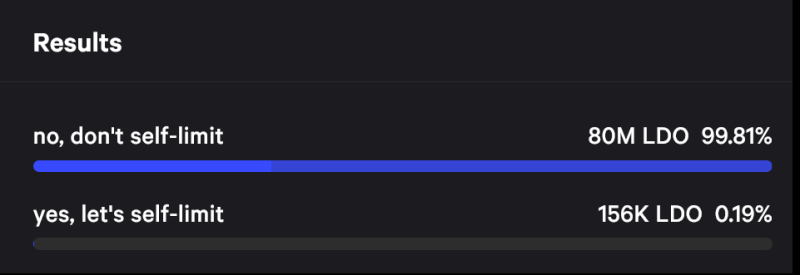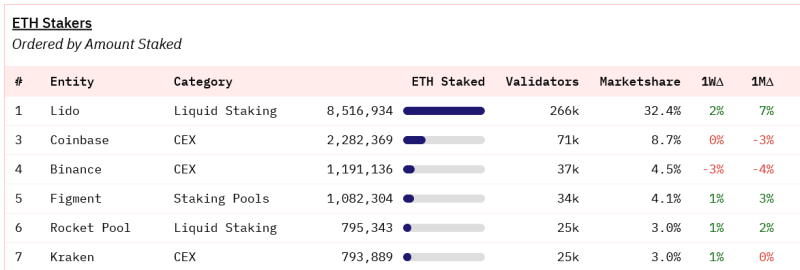The 22% self-limit rule ensures at least four major staking entities would need to collude in order for the chain to reach finalization.
At least five Ethereum liquid staking providers have either imposed or are working to impose a self-limit rule in which they promise not to own more than 22% of the Ethereum staking market — seen as a move to ensure the Ethereum network remains decentralized.
Among the Ethereum staking providers either already committed or are working to commit to the self-limit rule include Rocket Pool, StakeWise, Stader Labs and Diva Staking, according to Ethereum core developer Superphiz.
Puffer Finance, another liquid staking service, also announced its commitment to the self-limit.
The proposal presumably aims to address concerns of Ethereum staking becoming increasingly centralized.
As to why the self-limit was proposed at 22%, Superphiz explained that because 66% of validators need to agree on the state of Ethereum, setting the limit below 22% means at least four major entities must collude in order for the chain to reach finalization.
Finality is the point where transactions on a blockchain are considered immutable, supposedly ensuring that transactions within a block cannot be altered.
The idea was proposed by Superphiz in May 2022 when he questioned whether a staking pool would be willing to put the health of the chain before its own profits.
Interestingly, the largest Ethereum liquid staking provider, Lido Finance, voted by a 99.81% majority not to self-limit back in June.
“They have expressed an intention to control the majority of validators on the beacon chain,” Superphiz said in an Aug. 31 post.

Lido currently dominates the Ethereum staking market, accounting 32.4% of all staked Ether, while the next entity, Coinbase, accounts for only 8.7% of the market, according to data from Dune Analytics.

Who’s in the right? Mixed reactions from the Ethereum community
One industry pundit, “Mippo,” explained on Aug. 31 that the self-limit proposal has nothing to do with “Ethereum alignment” — a principle understood to enable credible neutrality and permissionless innovation on Ethereum.
Mippo claimed those trying to push the proposal wouldn’t make way if they were in Lido’s position.
“Everyone is doing the economically selfish and rational thing here,” Mippo concluded.
“Folks in the ETH community should not shame more user-friendly solutions as greedy products,” said another observer.
However, others were more wary of the potential centralization issues at hand, describing Lido’s market share dominance as “disgusting and selfish.”
